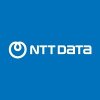Filter interviews by
SS&C TECHNOLOGIES Interview Questions and Answers
131 Interview questions
Corporate actions are events initiated by a company that affect its securities and shareholders, impacting stock value and ownership.
Dividends: Cash or stock payments to shareholders, e.g., quarterly cash dividends.
Stock Splits: Increasing the number of shares while reducing the share price, e.g., a 2-for-1 split.
Mergers and Acquisitions: Combining companies, affecting stock ownership and value, e.g., Company A ac...
Mutual funds pool money from multiple investors to invest in diversified portfolios of stocks, bonds, or other securities.
Mutual funds are managed by professional fund managers who make investment decisions on behalf of investors.
They offer diversification, reducing risk by spreading investments across various assets. For example, a balanced fund may invest in both stocks and bonds.
Investors can choose from differ...
A stock exchange is a marketplace where securities, such as stocks and bonds, are bought and sold by investors.
Facilitates trading of stocks, bonds, and other securities.
Examples include the New York Stock Exchange (NYSE) and NASDAQ.
Provides a platform for companies to raise capital by issuing shares.
Investors can buy shares to gain ownership in a company and potentially earn dividends.
Stock prices fluctuate based...
Financial statements provide insights into a company's financial health, performance, and cash flow management.
Balance Sheet (BS): Shows assets, liabilities, and equity at a specific point in time. Example: A company with $500,000 in assets and $300,000 in liabilities has $200,000 in equity.
Profit and Loss Statement (P&L): Summarizes revenues and expenses over a period, indicating profitability. Example: A com...
Fund accounting in private equity involves specific journal entries for investments, distributions, and management fees.
1. Initial Investment: Debit 'Investment in Portfolio Company' and Credit 'Cash'. Example: Investing $1M in a startup.
2. Management Fees: Debit 'Management Fee Expense' and Credit 'Cash'. Example: Charging a 2% management fee on $100M fund.
3. Distributions to Investors: Debit 'Cash' and Credit 'D...
Settlement is the process of resolving financial transactions between parties, ensuring all obligations are met.
Initiation: The process begins when a transaction occurs, such as a sale or service rendered.
Verification: Parties verify the details of the transaction, including amounts and terms.
Payment Processing: Funds are transferred from the payer to the payee, often through banks or payment processors.
Confirmati...
The trade cycle refers to the fluctuations in economic activity over time, characterized by periods of expansion and contraction.
The trade cycle consists of four main phases: expansion, peak, contraction, and trough.
During expansion, economic indicators like GDP, employment, and production increase. For example, a booming tech industry.
The peak phase represents the highest point of economic activity before a downt...
A function to reverse a given string by manipulating its characters in reverse order.
Use Python slicing: `reversed_string = original_string[::-1]`.
Iterate through the string in reverse using a loop: `for char in reversed(original_string)`.
Utilize the built-in `reversed()` function: `''.join(reversed(original_string))`.
Example: Input: 'hello', Output: 'olleh'.
A trial balance is a financial statement that lists the ending balances of all general ledger accounts at a certain point in time.
It is used to ensure that the total debits equal the total credits in the accounting records.
It is prepared before the financial statements are finalized to identify any errors or discrepancies.
If the trial balance does not balance, it indicates that there are errors in the accounting r...
Journal entry for paid in advance & outstanding expenses
Paid in advance expenses are recorded as assets on the balance sheet until they are used up
Journal entry for paid in advance expenses: Debit Prepaid Expenses, Credit Cash/Bank
Outstanding expenses are recorded as liabilities on the balance sheet until they are paid
Journal entry for outstanding expenses: Debit Expense Account, Credit Accounts Payable
SS&C TECHNOLOGIES Interview Experiences
185 interviews found
(2 Questions)
- Q1. Explain capital markets
- Ans.
Capital markets are where financial securities are bought and sold, including stocks, bonds, and commodities.
Capital markets facilitate the buying and selling of financial securities such as stocks, bonds, and commodities.
They provide a platform for companies and governments to raise capital by issuing securities to investors.
Investors can trade these securities through exchanges like the New York Stock Exchange (NYSE)...
- Q2. Explain Reconciliation, explain bond market, futures and options
- Ans.
Reconciliation involves comparing two sets of records to ensure they are in agreement. Bond market, futures, and options are financial instruments used for trading.
Reconciliation is the process of comparing two sets of records to ensure they are in agreement, typically used in accounting to verify transactions.
The bond market is where investors buy and sell debt securities issued by governments or corporations, with th...
(2 Questions)
- Q1. How do you handle audit queries
- Ans.
I handle audit queries by thoroughly reviewing the information, communicating effectively with stakeholders, and providing detailed responses.
Thoroughly review the audit query to understand the scope and requirements
Communicate with relevant stakeholders to gather necessary information and clarify any doubts
Provide detailed responses with supporting documentation and explanations
Follow up on any outstanding queries to ...
- Q2. How to handle team
- Ans.
Handle team by setting clear expectations, providing support, fostering open communication, and recognizing achievements.
Set clear expectations and goals for the team members.
Provide necessary support and resources to help team members succeed.
Foster open communication and encourage feedback from team members.
Recognize and reward achievements to motivate the team.
Address conflicts and issues promptly to maintain a posi...
Interview Preparation Tips
Rather I was not even informed that here even some teams work on weekends. You do not get any compensation for working extra
I appeared for an interview in Jan 2025.
(4 Questions)
- Q1. What is a trial balance?
- Ans.
A trial balance is a financial statement that lists the ending balances of all general ledger accounts at a certain point in time.
It is used to ensure that the total debits equal the total credits in the accounting records.
It is prepared before the financial statements are finalized to identify any errors or discrepancies.
If the trial balance does not balance, it indicates that there are errors in the accounting record...
- Q2. Tell me about financial products
- Ans.
Financial products are instruments that help individuals and organizations manage their financial resources and achieve specific financial goals.
Financial products can include savings accounts, certificates of deposit, stocks, bonds, mutual funds, and insurance policies.
They are designed to provide a range of benefits such as growth of capital, income generation, risk management, and tax advantages.
Different financial ...
- Q3. Journal entry for paid in advance & outstanding expenses
- Ans.
Journal entry for paid in advance & outstanding expenses
Paid in advance expenses are recorded as assets on the balance sheet until they are used up
Journal entry for paid in advance expenses: Debit Prepaid Expenses, Credit Cash/Bank
Outstanding expenses are recorded as liabilities on the balance sheet until they are paid
Journal entry for outstanding expenses: Debit Expense Account, Credit Accounts Payable
- Q4. How is market value derived for mutual fund
- Ans.
Market value for mutual funds is derived by calculating the total value of all the securities in the fund's portfolio.
Market value of a mutual fund is calculated by multiplying the number of shares outstanding by the current market price per share.
The market value of a mutual fund can also be influenced by factors such as supply and demand, interest rates, and overall market conditions.
Investors can track the market va...
(2 Questions)
- Q1. What stresses you out the most?
- Ans.
Tight deadlines and unexpected changes in project scope are my biggest stressors, as they challenge my planning and adaptability skills.
Tight deadlines can create pressure; for example, when a project is due a week early, I must prioritize tasks effectively.
Unexpected changes in project scope can lead to stress; for instance, if a client requests additional features mid-project, it requires quick adjustments.
High-stake...
- Q2. Where do you see yourself in 3 years?
- Ans.
In three years, I envision myself as a key contributor in operations, leading projects and driving efficiency improvements.
I aim to take on leadership roles, managing cross-functional teams to enhance operational processes.
I plan to develop expertise in data analysis tools, such as SQL and Tableau, to provide actionable insights.
I hope to contribute to strategic initiatives that improve supply chain efficiency, reducin...
(2 Questions)
- Q1. Name a time you had a dispute on a project
- Q2. What are your biggest strengths?
Interview Preparation Tips
(2 Questions)
- Q1. Tell me something about vlookup
- Ans.
vlookup is a function in Excel used to search for a value in a table and return a corresponding value from another column.
Used in Excel to search for a value in the first column of a table and return a value in the same row from another column
Syntax: =VLOOKUP(lookup_value, table_array, col_index_num, [range_lookup])
Example: =VLOOKUP(A2, B2:D10, 3, FALSE) will search for the value in cell A2 in the first column of the r...
- Q2. What is deferral
- Ans.
Deferral is the act of delaying or postponing something to a later time.
Deferral is commonly seen in financial contexts, where it refers to delaying the recognition of revenue or expenses to a future period.
It can also refer to delaying a decision or action until more information is available or circumstances change.
For example, a company may defer recognizing revenue from a sale until the product is delivered to the c...
Interview Preparation Tips
(2 Questions)
- Q1. What is subscription
- Ans.
A subscription is a service where a customer pays a recurring fee to access a product or service.
Subscription models are common in industries such as streaming services (Netflix, Spotify), software (Adobe Creative Cloud), and online publications (New York Times).
Customers typically pay a monthly or annual fee to access the product or service.
Subscriptions often offer benefits such as regular updates, exclusive content,...
- Q2. What is redemption
- Ans.
Redemption is the act of being saved or rescued from sin, error, or evil.
Redemption is often associated with religious beliefs and the idea of being forgiven for past wrongdoings.
It can also refer to the act of making up for a mistake or wrongdoing by doing something good or virtuous.
In some contexts, redemption can mean the act of paying off a debt or fulfilling a promise.
Examples of redemption can be found in literat...
(1 Question)
- Q1. What is Transfer agency
- Ans.
Transfer agency is a financial institution that manages the transfer of securities between investors.
Transfer agencies handle the processing of transactions related to buying, selling, and transferring securities.
They maintain records of ownership, issue statements to investors, and handle dividend payments.
Examples of transfer agencies include Computershare, American Stock Transfer & Trust Company, and DST Systems...
(2 Questions)
- Q1. Explain advantages of Angular
- Ans.
Angular offers advantages such as two-way data binding, dependency injection, and modular architecture.
Two-way data binding allows automatic synchronization of data between the model and the view, reducing the need for manual DOM manipulation.
Dependency injection helps manage dependencies and promotes code reusability by allowing components to be easily injected with their dependencies.
Modular architecture enables deve...
- Q2. Explain about ngmodel
- Ans.
ngModel is a directive in AngularJS that binds the value of HTML controls to application data.
ngModel is used for two-way data binding in AngularJS.
It can be used with input, select, textarea, and custom form controls.
Example:
(2 Questions)
- Q1. Java coding questions
- Q2. Core java and spring questions
(1 Question)
- Q1. Salary expectation
- Ans.
I expect a competitive salary that reflects my experience and the industry standards for a Senior Software Engineer.
Based on my research, the average salary for a Senior Software Engineer in this region is between $120,000 and $150,000.
I have over 8 years of experience in software development, which I believe justifies a salary towards the higher end of that range.
I am also open to discussing additional benefits such a...
Skills evaluated in this interview
I appeared for an interview in Aug 2024.
(5 Questions)
- Q1. What is the meaning of reconciliation
- Ans.
Reconciliation is the process of ensuring two sets of records are in agreement and any discrepancies are resolved.
Reconciliation involves comparing financial records to ensure they match up
It is important for identifying errors or fraud
Examples include reconciling bank statements with accounting records
- Q2. What is the meaning of initial margin and variation margin
- Ans.
Initial margin is the collateral required to open a position, while variation margin is the daily settlement of gains and losses.
Initial margin is the amount of collateral required to open a position in a financial transaction.
Variation margin is the daily settlement of gains and losses to ensure that the account maintains the required margin level.
Initial margin helps protect against potential losses, while variation ...
- Q3. What is the meaning of bond, equity and fix income
- Ans.
Bonds are debt securities issued by corporations or governments, equity represents ownership in a company, and fixed income refers to investments with a set interest rate.
Bonds are loans made by investors to corporations or governments, who pay interest on the loan until it matures.
Equity represents ownership in a company, giving shareholders voting rights and a share of profits.
Fixed income investments have a set inte...
- Q4. What is the meaning of long call short call long put shot put
- Ans.
Long call, short call, long put, and short put are options trading strategies involving buying or selling options contracts.
Long call: Buying a call option with the expectation that the underlying asset will increase in value.
Short call: Selling a call option with the expectation that the underlying asset will decrease in value.
Long put: Buying a put option with the expectation that the underlying asset will decrease i...
- Q5. Difference between the features and option
- Ans.
Features are inherent characteristics of a product or service, while options are additional choices or variations within those features.
Features are essential components of a product or service that define its core functionality.
Options are additional choices or variations within those features that allow for customization or personalization.
For example, a car's feature may be its engine size, while the options within ...
(2 Questions)
- Q1. What is impact on Market Price and Total portfolio after issue of Bonus share
- Ans.
Issue of bonus shares typically leads to a decrease in market price and an increase in total portfolio value.
Issuing bonus shares increases the number of shares outstanding without any change in the total market value of the company.
This dilution of shares usually leads to a decrease in the market price per share.
However, the total portfolio value remains the same as the investor now holds more shares, albeit at a lowe...
- Q2. Difference between Amortisation and Depreciation & Impairment
Interview Preparation Tips
I appeared for an interview before Jul 2024, where I was asked the following questions.
- Q1. What are design patterns
- Q2. What is architecture of EMS
(2 Questions)
- Q1. Core java oops concepts
- Q2. Angular basic topics
(2 Questions)
- Q1. Spring boot topics
- Q2. Oracle queries examples
- Ans.
Examples of Oracle queries
Use SELECT statement to retrieve data from a table
Use WHERE clause to filter results based on a condition
Use JOIN to combine rows from two or more tables based on a related column
(2 Questions)
- Q1. Discussed about my carrer details
- Q2. Expected CTC discussed
Interview Preparation Tips
Skills evaluated in this interview
Top trending discussions






SS&C TECHNOLOGIES Interview FAQs
Some of the top questions asked at the SS&C TECHNOLOGIES interview -
The duration of SS&C TECHNOLOGIES interview process can vary, but typically it takes about less than 2 weeks to complete.
Tell us how to improve this page.
SS&C TECHNOLOGIES Interviews By Designations
- SS&C TECHNOLOGIES Senior Associate Interview Questions
- SS&C TECHNOLOGIES Associate Interview Questions
- SS&C TECHNOLOGIES Fund Accountant Interview Questions
- SS&C TECHNOLOGIES Associate Manager Interview Questions
- SS&C TECHNOLOGIES Financial Associate Interview Questions
- SS&C TECHNOLOGIES Senior Software Engineer Interview Questions
- SS&C TECHNOLOGIES Financial Service Associate Interview Questions
- SS&C TECHNOLOGIES Process Associate Interview Questions
- Show more
Interview Questions for Popular Designations
- Senior Associate Interview Questions
- Associate Interview Questions
- Fund Accountant Interview Questions
- Associate Manager Interview Questions
- Financial Associate Interview Questions
- Senior Software Engineer Interview Questions
- Process Associate Interview Questions
- Financial Service Associate Interview Questions
- Show more
Overall Interview Experience Rating
based on 161 interview experiences
Difficulty level
Duration
Interview Questions from Similar Companies
SS&C TECHNOLOGIES Reviews and Ratings
based on 1.6k reviews
Rating in categories
Hyderabad / Secunderabad
5-9 Yrs
Not Disclosed
|
Senior Associate
3.5k
salaries
| ₹4.1 L/yr - ₹9.2 L/yr |
|
Associate
1.5k
salaries
| ₹3.4 L/yr - ₹7 L/yr |
|
Associate Manager
1.3k
salaries
| ₹9.2 L/yr - ₹16 L/yr |
|
Manager
635
salaries
| ₹13 L/yr - ₹24 L/yr |
|
Senior Software Engineer
364
salaries
| ₹15.8 L/yr - ₹29 L/yr |

DXC Technology

Optum Global Solutions

Virtusa Consulting Services

CGI Group
- Home >
- Interviews >
- SS&C TECHNOLOGIES Interview Questions













